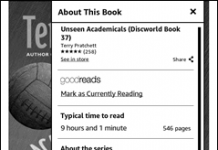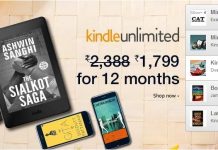Mike Cane ran a post the other day entitled Tweet Of The Day: Print Publishing Is Sinking, prompted by this tweet from literary agent Jonny Geller:
I decided to make The Penal Colony free at Smashwords (and hence Smashwords’s partners), knowing that Amazon would follow suit and reduce the $2.99 price to zero. For some reason, Amazon does not allow publishers to set a zero price directly. I don’t check my Amazon stats very often, but yesterday I noticed that The Penal Colony was being offered free at amazon.com, and that some 4,300 copies had been downloaded in September. Just now (20.09 GMT on 15 September) I looked again and the total is up to 10,649; the title is now at No. 10 in “Free at the Kindle Store”.
This seems an effective way for an author to bring his work to wider notice. Obviously it would be nice if some of those downloaders decided to explore my other books; Refuge is a better novel than Penal Colony, and The Tide Mill and The Drowning, in my view, are far better still.
The main point is the illustration these figures make of the power of Amazon.
Print publishing, of mass-market fiction at least, is not just sinking. It’s hurtling down the lift-shaft.


































I got the Penal Colony for free, and will be happy to get his other books if I like it The problem is, I have over 2500 ebooks now, it may be a while before I get to his.
Am I understanding this right?
* Anyone who buys your book from a Smashword’s source, say B&N, is getting it free and you get no royalties.
* Anyone who buys it from Amazon also gets it for free but, because you have a separate contract with Amazon that pays you 70% of $2.95, you get about $1.40 in royalties for each free copy.
By my calculations you just subtracted about $15,000 from Amazon’s profits for the year. Somehow I don’t think Amazon will be playing that game for very long.
@Michael W. Perry: That’s not how it works. Amazon contracts have a price-match clause. Your scenario explains why. Amazon will match the price of any competitor selling a given ebook and adjust royalties accordingly.
Michael: on Amazon’s 70% royalty option, the author gets [almost] 70% of the actual selling price. If the e-book sells for nothing, they get nothing. This was the big driver behind Smashwords switching to Agency Model: authors/publishers were freaking out that if, say, Sony were to make their e-book free, Amazon would price-match and they’d lose all their Amazon royalties. Of course, that concern’s not directly relevant in this case because the author chose to make the e-book free.
Amazon’s not losing anything on the 70% royalty option.
The 35% royalty option works differently. There, the author gets 35% of the list price regardless of what the e-book sells for. However, the author can’t set a lower list price anywhere else than their list price on Amazon.
Here’s the thing. Sadly, 10,000 downloads doesn’t mean 10,000 readers. I have a free short on Amazon that has been downloaded thousands or times. In all of those downloads, I’ve only had two people review it. Now, I know it’s hard to get people to review, but I also think people download everything free, and it just sits on their Kindle for months. Years?
That said, it’s more publicity than if it wasn’t there. As indie authors, we just do whatever we can, right?